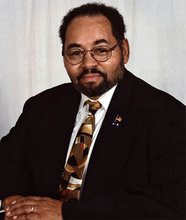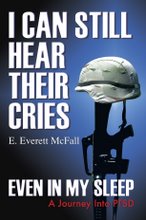retuning combat Vetreans.
SPECIAL REPORT
The Private Battle, Part 3 of Dennis and Mikell Delisle
By Darren Perron - WCAX News
Franklin, Vermont - February 7, 2008
"An IED went off and come up through the floorboard of the truck,"
recounts Dennis Delisle.

Delisle doesn't talk about his experience in Iraq much. But when
he does, it's clear the war veteran suffers from invisible wounds
in addition to the shrapnel in his groin and hearing loss following
a roadside bomb attack.
"We had one soldier... his truck was blown up off the bridge. It
engulfed in flames and he burned to death," says Delisle.
Delisle suffers from Post Traumatic Stress Disorder. He's been
suicidal, homicidal, and is struggling to transition back into his
life at home. "As it goes on, you hide and it gets worse," he
explains.
PTSD has been tough on his family, too. His wife, Mikell, lost her
hair after stress triggered a condition called Alopecia. Dennis can't
hold down a job. And the couple is losing their home in Franklin
because they're so behind on their bills.

Mikell Delisle
The Flashbacks, sleepless nights due to those sub-concious
nightmares, the frustration of Survivers Guilt> "It's too
much for them. They shouldn't have to deal with that when
they comehome," says Mikell Delisle.
The rates of PTSD are at record levels, with more Iraq War vets
diagnosed than vets from any other war in American history.
Though experts say the illness is nothing new.
Once called Vietnam syndrome, shell shock, or battle fatigue,
PTSD was officially recognized in 1980. With increased
awareness and treatment options more soldiers now come
forward, acknowledging their symptoms and adding to the
number of reports.
(Despite the service-wide stigma attached to having PTSD.)
Most are National Guard soldiers. It's estimated that
half of all of them returning from the Middle East suffer
from PTSD and Traumatic Brain Injuries.
And that number is expected to grow with repeated deployments.
"The cost of war is a lot more than most people think it is," says
Sen. Bernie Sanders, I-Vermont. "It's not just the tanks, the
weapons and the bombs. It's not just those who come home in
caskets or the funerals.
It's not just those who lose their legs and arms. We can see that.
There is an invisible cost of war." Sanders helped secure
federal funds for the Veterans and Families Outreach Program--
a first-of-its-kind project that other states are closely watching.
"Our job mainly is to contact soldiers," explains Vt. National
Guard Outreach Team Leader James MacIntyre. Nine trained
outreach workers plan to interview all 2,662 Vermonters who
served in the Middle East and their families to see how they're
doing and get them into the right programs quickly. When dealing
with PTSD early intervention is crucial.
"We're convinced if people are contacted we unearth things that
could grow bigger, but you get them. Get them to an appointment.
Get them into financial resources, family counseling resources and
that's all going to make a big difference," says MacIntyre.
There are several treatments for PTSD, including individual and
group counseling, and cognitive behavioral therapy, which experts
say is proving most powerful. Soldiers confront their traumatic
memories and learn how to cope with them. Sufferers usually take
anti-depressants which also help with anxiety disorders, like PTSD.
Some soldiers can be cured; for others, PTSD will be a life-long battle.
Symptoms of PTSD may not show up for years. Now the VA has
extended its eligibility for free health care to five years after service
and it includes treatment for PTSD.

Dr. Matthew Friedman
"If left untreated, PTSD can have terrible consequences and people
are gonna be alone and homeless," explains Dr. Matthew Friedman
of the National Center for PTSD. "We want to really prevent the
newer veterans from going through the same cycle of alienation that
older veterans have gone through."
Medication and counseling continue to help Delisle-- who hopes to
win his private battle. "My treatment is working. Hopefully, I can
keep a job," he says. "Now we find another home and start all over."
At least three Vermonters who served in Iraq have committed
suicide since they returned from the war zone.
The VA has set up a 24-hour suicide hotline
round-the-clock access to mental health professionals.
The number is 1-800-273-TALK.
To learn more about PTSD-- visit the
National Center for PTSD website.
Private Battle, Part 1
Private Battle, Part 2
Flashback, Posttraumatic Stress Disorder, Suicide, and the Lessions of WAR
by Penny Coleman
I Can Still Hear Thier Cries, Even In My Sleep...A Journey Into PTSD
By E. Everett McFall
Both Books are Available on Amazon.com






